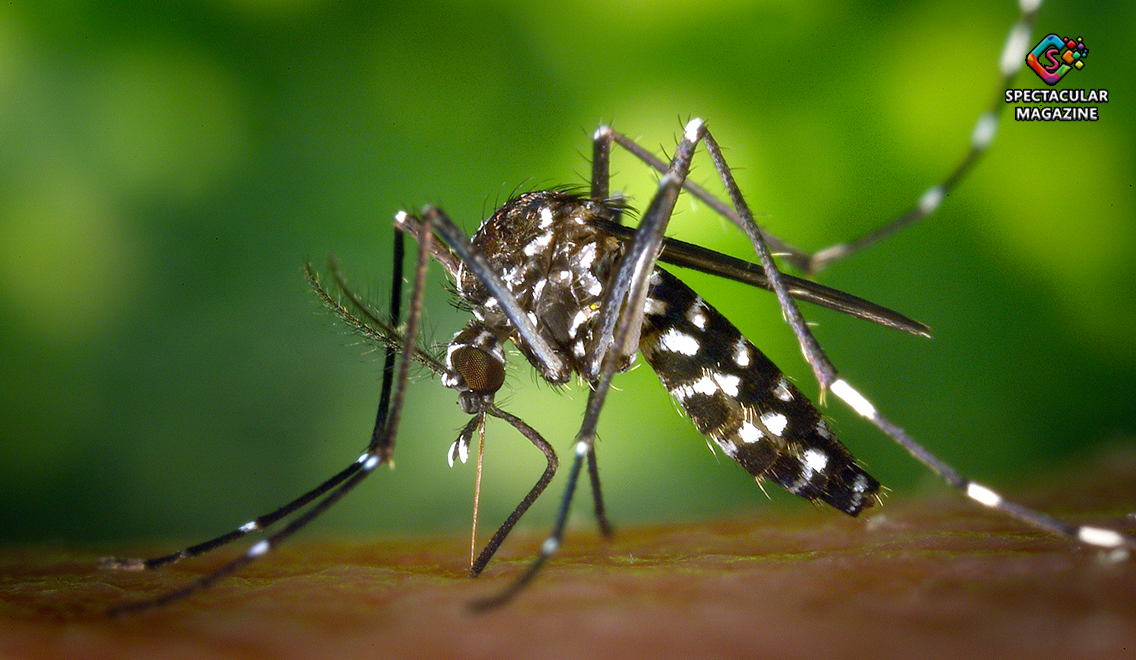Mosquito-Transmitted Viruses: What You Need To Know
The mosquito season is around. Every year from early April to late October, those little creatures appear in the air of North Carolina, leaving the itching bumps behind.
In recent years, the North Carolina Department of Health and Human Services has been notifying people about the presence of mosquito-transmitted viruses and the deaths it has caused.
During 2022, the department’s Sept. 19 press release said North Carolina was experiencing an increased mosquito-transmitted virus activity; then, a few days later on Sept. 30, it reported the first death.
The West Nile virus, a mosquito-transmitted neuro-infectious virus, is the leading cause of mosquito-related disease in the U.S., according to the Centers for Disease Control and Prevention. Since its first recognition in 1999, the virus has infected 101 people and killed 77 in the state.
But that does not mean mosquitos are becoming secret assassins carrying around their lethal poisons. Most people who are bitten by virus-carrying mosquitos will receive nothing but some itching bumps.
For people who are infected – unlucky as it is – only about 20 percent of them will experience a fever-like symptom, and only one in 150 will develop a serious, sometimes fatal disease, Kelly Connor, communications manager for NCDHHS, said.
Victoria Hudson, environmental health director for Orange County, said the county cannot kill or control the mosquitos. And since there is no vaccine or cure for humans, she recommends people follow the precautions from the state.
“Mosquito education and outreach will be offered to the Townships, the park systems, schools, childcare centers, churches, veterinarians, and civic organizations,” Hudson wrote in an email.
As per precautions, people should use mosquito repellent that contains DEET, picaridin, IR353, or oil of lemon eucalyptus and wear long sleeves, pants, and socks when going out. While in their home, they should make sure their windows are intact and doors closed.
Moreover, people can reduce mosquito breeding by emptying standing water from places like flowerpots, pet water dishes, and gutters.
Yan-Jang Huang, a research assistant professor for the Kansas State University Department of Diagnostic Medicine/Pathobiology, wrote an academic review on different mosquito-transmitted viruses. In the article, he and his colleagues, Dana Vanlandingham, and Stephen Higgs, specified what mosquitos transmit what viruses.
“West Nile virus grows in birds, and mosquitos feed on the birds and they get infected, and they transmit it back to other birds. But sometimes they’ll feed on humans – they’re not so picky,” Huang said.
The mosquitos that carry the West Nile virus are called Culex mosquitos. They have a light brown, translucent look. They lack white stripes but contain some black spots on their bodies.
 Dengue, Zika, and Chikungunya viruses, three viruses that are less lethal and less popular in North Carolina, are carried and transmitted by two mosquitos named Aedes aegypti and Aedes albopictus. While their scientific names are difficult to decipher, they can be easily identified. Both mosquitos are black, with some white spots scattered around their heads, legs, wings, and bodies. They bite during the day and the night.
Dengue, Zika, and Chikungunya viruses, three viruses that are less lethal and less popular in North Carolina, are carried and transmitted by two mosquitos named Aedes aegypti and Aedes albopictus. While their scientific names are difficult to decipher, they can be easily identified. Both mosquitos are black, with some white spots scattered around their heads, legs, wings, and bodies. They bite during the day and the night.
The Dengue virus mostly occurs in metropolitan areas, while the Chikungunya virus is most popular in coastal areas and islands. The Zika virus is the only virus that circulates between humans. It can be passed on from mothers to babies and spread through sexual activities.
Under the impression of COVID-19, any virus can sound more dangerous than they really are. But again, the possibility of catching mosquito-transmitted viruses is slight. During the past two decades, less than 0.01 percent of the total population in North Carolina has been infected. So don’t worry about it … unless you see the three very mosquitos!


